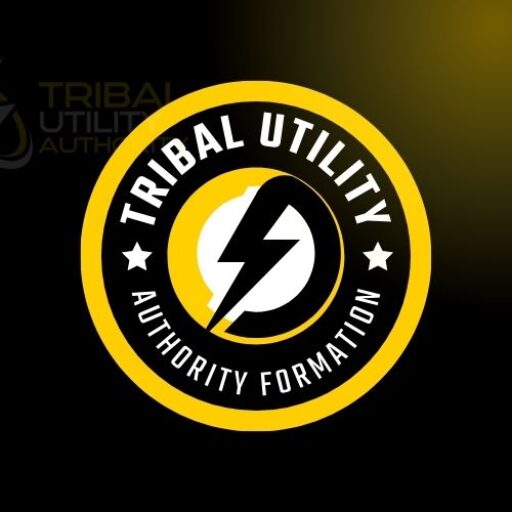Tribal Utility Authority Part XVI: Budgeting for Your Utility Authority
Tribal Utility Authority | Powered By Red Power Energy
TUA Experts
+1 855-573-3769
Good >Better>Best Options
Budgeting for Your Utility Authority
Effective budgeting provides the financial roadmap for successful tribal utility operations. Think of your budget as a story told in numbers—one that describes how your utility will serve the community while maintaining sustainable operations. Just as traditional tribal leaders carefully managed resources to ensure community well-being, modern utility budgeting ensures resources support both current needs and future development.
Revenue forecasting starts the budgeting process with careful examination of expected income. This involves more than simply projecting rate revenue—grants, fees, and other income sources all contribute to your utility’s financial picture. Weather patterns affect water sales, economic conditions influence payment rates, and grant availability changes over time. Many successful utilities develop multiple revenue scenarios to help prepare for various financial conditions.
Operating expenses form the foundation of utility budgeting. These daily costs include everything from employee salaries to treatment chemicals, from electricity bills to office supplies. Each expense category needs careful analysis based on both historical experience and future expectations. Consider how changing conditions might affect various expenses—rising chemical costs, increasing power rates, or new regulatory requirements can all impact your budget. Experience shows that thorough operating expense analysis helps prevent budget surprises.
Personnel costs typically represent the largest single expense category. Beyond basic salaries, consider benefits, training requirements, overtime needs, and potential staff changes. Rising healthcare costs, new certification requirements, or needed expertise might affect these expenses. Many utilities find that careful personnel budgeting helps maintain both staffing stability and financial control.
Maintenance budgeting supports reliable system operation. While some maintenance follows regular schedules, emergency repairs need adequate funding too. Consider both routine maintenance requirements and typical emergency expenses when developing maintenance budgets. Experience shows that adequate maintenance funding helps prevent larger future expenses while maintaining reliable service.
Capital improvement planning extends beyond annual budgeting but affects yearly financial needs. Major system improvements might require debt service payments, matching funds for grants, or direct funding from operations. Consider both immediate project needs and long-term improvement plans when developing capital budgets. Many successful utilities maintain rolling capital improvement plans that guide annual budget development.
Debt service requirements demand careful attention in utility budgets. Bond payments, loan obligations, and other financing costs typically represent fixed expenses that must be met. Consider both existing debt obligations and potential future borrowing needs when budgeting. Experience shows that careful debt management helps maintain utility financial stability while supporting necessary improvements.
Reserve funding needs careful consideration during budget development. Operating reserves, emergency funds, and capital improvement reserves all support long-term utility sustainability. Consider both minimum reserve requirements and desired funding levels when budgeting. Many utilities find that consistent reserve funding helps maintain financial stability while preparing for future needs.
Grant management affects both revenue and expense budgeting. While grants provide valuable funding, they often require matching funds or create new expenses through reporting requirements or maintenance obligations. Consider both grant opportunities and obligations when developing budgets. Experience shows that careful grant budgeting helps maximize funding benefits while maintaining compliance.
Administrative costs support overall utility operations. Office expenses, insurance, professional services, and similar costs need adequate funding for effective operations. Consider both direct administrative needs and indirect cost allocations when budgeting. Many successful utilities find that appropriate administrative budgeting helps maintain efficient operations while controlling costs.
Regulatory compliance creates various budget requirements. Testing programs, reporting systems, and compliance monitoring all need adequate funding. Consider both current requirements and potential future regulations when developing compliance budgets. Experience shows that adequate compliance funding helps prevent problems while maintaining regulatory standing.
Technology needs increasingly affect utility budgets. Computer systems, communication equipment, and operational technology all require funding for both purchase and maintenance. Consider both immediate technology needs and future upgrades when budgeting. Many utilities find that systematic technology budgeting helps maintain capabilities while controlling costs.
Emergency funding requires attention beyond normal operating budgets. While insurance covers some emergencies, immediate response often requires readily available funds. Consider both typical emergency needs and major disaster possibilities when establishing emergency budgets. Experience shows that adequate emergency funding helps maintain service during difficult times.
KEEP READING BELOW
WIDE RANGE OF TRIBAL UTILITY SERVICES
Do you need Tribal Solar Help ? Look no further!
Leading experts in Tribal Utility Authority formation, IPP development, and PPA negotiation. Transform your tribe's energy infrastructure with comprehensive solutions backed by decades of experience in Indian Country.
- Tribal Utility Authority Formation
- Independent Power Producer Development
- Power Purchase Agreement Negotiation
- Virtual Tribal Energy Office Implementation
- Energy Program Management




Budget monitoring systems ensure operations stay within financial plans. Regular financial reports, variance analysis, and performance metrics help track budget compliance. Consider both tracking requirements and response procedures when developing monitoring systems. Many successful utilities find that effective monitoring helps maintain budget compliance while identifying needed adjustments.
Adjustment procedures allow response to changing conditions. While budgets provide operating plans, circumstances often require modifications. Consider both adjustment authority levels and documentation requirements when establishing procedures. Experience shows that clear adjustment procedures help maintain financial control while providing operational flexibility.
Review processes ensure budgets remain appropriate and effective. Regular budget examination helps identify both problems and opportunities. Consider both routine reviews and special circumstances requiring budget examination. Many utilities find that systematic review processes help maintain financial stability while supporting continuous improvement.
Documentation requirements support both current operations and future planning. Clear records of budget development, decisions, and adjustments help maintain program consistency. Consider both operational needs and regulatory requirements when establishing documentation systems. Experience shows that thorough documentation helps defend budget decisions while supporting future planning.
Training needs affect multiple budget categories. Staff development, certification requirements, and safety training all need adequate funding. Consider both required training and desired skill development when budgeting. Many successful utilities find that adequate training budgets help maintain operational capabilities while supporting staff development.
Community engagement influences budget development and presentation. While technical analysis drives many budget decisions, community understanding and support prove crucial for success. Consider both formal presentation requirements and informal communication needs when planning budget engagement. Experience shows that effective community engagement helps maintain support for necessary funding.
Long-term planning ensures budgets support sustained utility development. While annual budgets address immediate needs, longer-term financial planning guides utility evolution. Consider both current operations and future development when establishing planning horizons. Many utilities find that comprehensive planning helps guide budget development while supporting sustainable operations.
Integration requirements connect budgets with other utility management systems. Financial planning must align with operational planning, capital improvement programs, and community development goals. Consider both technical connections and practical coordination when developing integration approaches. Experience shows that effective integration helps maintain consistent utility development while supporting efficient operations.
Experienced Tribal Solar Experts
WE USE THE LATEST TOOLS & TECHNOLOGY
We provide reliable and quality electrical services to customers in the area. We specialize in all aspects of residential and commercial electrical work, from new installations and upgrades to repairs and maintenance.
We are a full-service electrical contractor dedicated to providing quality electrical services to both residential and commercial customers. Our team of experienced electricians are highly trained and certified.
TRIBAL UTILITY AUTHORITY CONSULTING
Expert guidance in establishing and managing tribal utility authorities, helping Native American communities achieve energy sovereignty through strategic planning and implementation.
TRIBAL UTILITY PROGRAMS
Comprehensive support for developing and implementing sustainable tribal utility programs that enhance community self-reliance and economic development.
TRIBAL UTILITY AUTHORITY FORMATION
Complete assistance in establishing legally sound tribal utility authorities, including regulatory compliance, governance structure development, and operational framework creation.
TRIBAL UTILITY AUTHORITY OPERATIONS
Professional support for day-to-day utility management, including system maintenance, customer service, billing operations, and performance optimization.
TRIBAL UTILITY AUTHORITY TECHNOLOGY
State-of-the-art technological solutions for modern tribal utility operations, featuring advanced metering, smart grid capabilities, and integrated management systems.
TRIBAL UTILITY AUTHORITY WORKFORCE
Specialized workforce development programs focused on building local capacity through technical training, professional development, and ongoing operational support.
Are you in need of an Tribal Utility Authority Expert ?
Look no further! Our team is here to help.
REACH OUT AND CONNECT
Get a Complete Quote
Your bridge to meaningful communication and personalized assistance, we're here to listen and assist you
Latest Tribal Utility Authority Updates
NAVIGATING IDEAS AND INSPIRATION

Tribal Utility Authority Overview
A tribal utility authority is a specialized administrative entity established by a Native American tribe to manage and operate essential utility services within their tribal

Tribal Utility Authority Formation: Harnessing Tribal Energy Sovereignty
Tribal Utility Authority Formation: Harnessing Tribal Energy Sovereignty Welcome to TribalUtilityAuthority.com, the definitive resource on establishing and operating Tribal Utility Authorities (TUAs) to achieve energy




